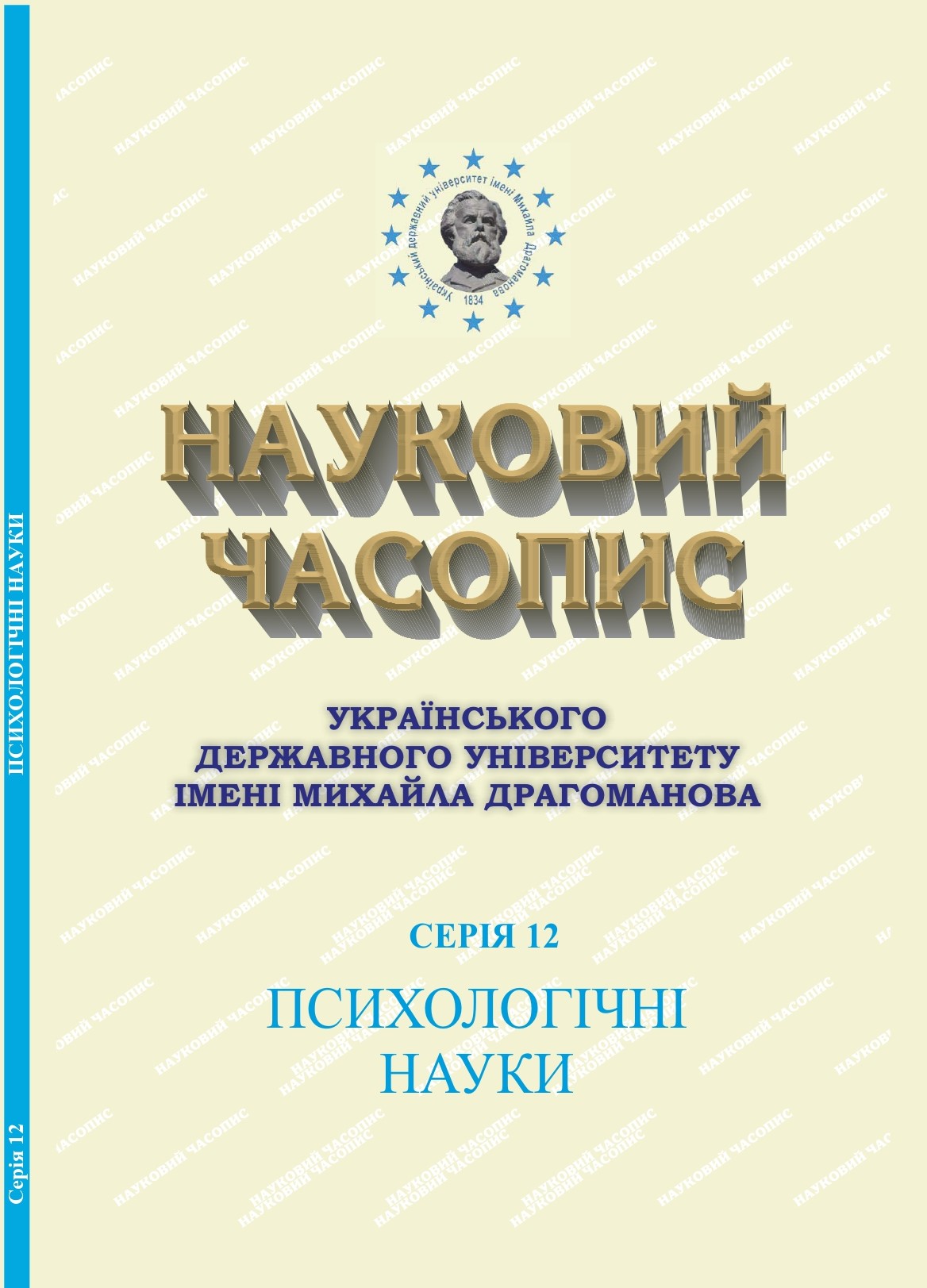PROCESS, CONTENT, AND CONTEXTUAL APPROACHES TO CAREER CHOICE
DOI:
https://doi.org/10.31392/UDU-nc.series12.2024.23(68).07Keywords:
career choice, vocational behavior, career choice process, career choice context, professional development.Abstract
The article is aimed to a theoretical analysis of key approaches that influence career decision-making: process, content and context. The peculiarities of interaction of these approaches and their influence on the formation of career trajectories of an individual in the modern labor market are revealed. It is important to consider how these approaches can cooperate or, in fact, come into conflict, creating a unique set of challenges and capabilities for each individual. The research aims to provide a deeper understanding of the interactions between process, content, and contextual approaches to career choice and their implications for the career decision-making process. To achieve this goal, a thorough analysis of the scientific literature is required, including a review of theoretical frameworks, analysis of empirical research and conceptual models. Existing knowledge has been systematized and promising directions for further development of process, content and contextual aspects in the field of career development have been identified. It has been revealed that the integration of process, content and contextual approaches to career choice will provide a more in-depth and comprehensive understanding of career development of individuals. It is stated that the interaction between these approaches can facilitate the effective identification of professional interests and goals, as well as a better understanding of contextual barriers and opportunities. Also, potential conflicts between the internal dynamics of individuals and external ones have been identified, which emphasizes a different approach in the process of career counseling. The critical need for integration of process, content, and contextual approaches to improve career decision-making is emphasized. It has been established that this integration embraces a broad range of specific characteristics, interests, and contextual boundaries with which individuals interact. The urgency of developing comprehensive assessment tools and interventions that would cover all aspects of career choice is being discussed, which opens up new prospects for further research in this population.
References
- Lozovetska, V. (2019). Faktory s problemy, scho vplyvaut’ nf kariernyi rozvytok suchasnoi osobystosti [Factors and problems affecting the career development of a modern individual]. Molod i rynok – Youth and the market, 9, 44–50. Retrieved from http://nbuv.gov.ua/UJRN/Mir_2019_9_10 [in Ukrainian].
- Fradynska, А. (2010). Svidomyi vybir profesii yak golovna problema suchasnoi molodi [Conscious choice of profession as the main problem of modern youth]. Collection of scientific works of the Khmelnytskyi Institute of Social Technologies of the University of Ukraine, 2, 135–139 [in Ukrainian].
- Bimrose, J., & Mulvey, R. (2015). Exploring career decision-making styles across three European countries. British Journal of Guidance & Counselling, 43(3), 337–35.
- Blustein, D.L., Kenny, M.E., Di Fabio, A., & Guichard, J. (2019). Expanding the impact of the psychology of working: Engaging psychology in the struggle for decent work and human rights. Journal of Career Assessment, 27(1), 3–28. https://doi.org/10.1177/1069072718774002
- Byington, E.K., Felps, W., & Baruch, Y. (2019). Mapping the Journal of Vocational Behavior: A 23-year review. Journal of Vocational Behavior, 110, 229–244. https://doi.org/10.1016/j.jvb.2018.07.007
- Gati, I., & Asher, I. (2001). Prescreening, in‐depth exploration, and choice: From decision theory to career counseling practice. The Career Development Quarterly, 50(2), 140–157.
- Gati, I., Gadassi, R., & Shemesh, N. (2006). The predictive validity of a computer-assisted career decision-making system: A six-year follow-up. Journal of Vocational Behavior, 68(2), 205–219.
- Gottfredson, L.S. (1981). Circumscription and compromise: A developmental theory of occupational aspirations. Journal of Counseling Psychology, 28(6), 545–579. https://doi.org/10.1037/0022-0167.28.6.545
- Hirschi, A. (2018). The fourth industrial revolution: Issues and implications for career research and practice. The Career Development Quarterly, 66(3), 192–204. https://doi.org/10.1002/cdq.12142
- Kahneman, D. (2011) Thinking, Fast and Slow, Macmillan. London.
- Krumboltz, J.D., Mitchell, A.M., & Jones, G.B. (1976). A social learning theory of career selection. The counseling psychologist, 6(1), 71–81.
- Kulcsár, V., Dobrean, A., & Gati, I. (2020). Challenges and difficulties in career decision making: Their causes, and their effects on the process and the decision. Journal of Vocational Behavior, 116, 103346. https://doi.org/10.1016/j.jvb.2019.103346
- Lent, R.W., & Brown, S.D. (2013). Social cognitive model of career self-management: Toward a unifying view of adaptive career behavior across the life span. Journal of Counseling Psychology, 60(4), 557–568. https://doi.org/10.1037/a0033446
- Lent, R.W., & Brown, S.D. (2020). Career decision making, fast and slow: Toward an integrative model of intervention for sustainable career choice. Journal of Vocational Behavior, 120,Article 103448. https://doi.org/10.1016/j.jvb.2020.103448
- Parsons, F. (1909). Choosing a vocation. Boston : Houghton Mifflin.
- Sabates, R., Gutman, L. M., & Schoon, I. (2017). Is there a wage penalty associated with degree of indecision in career aspirations? Evidence from the BCS70. Longitudinal and Life Course Studies, 8(3), 290–301.
- Sampson, J. P., Jr., Reardon, R. C., Peterson, G. W., & Lenz, J. G. (2004). Career counseling and services: A cognitive information processing approach. Pacific Grove, CA : Brooks/Cole.
- Super, D.E. (1953). A theory of vocational development. American Psychologist, 8(5), 185–190. https://doi.org/10.1037/h0056046
- Xu, H., & Bhang, C.H. (2019). The structure and measurement of career indecision: A critical review. The Career Development Quarterly, 67(1), 2–20.

